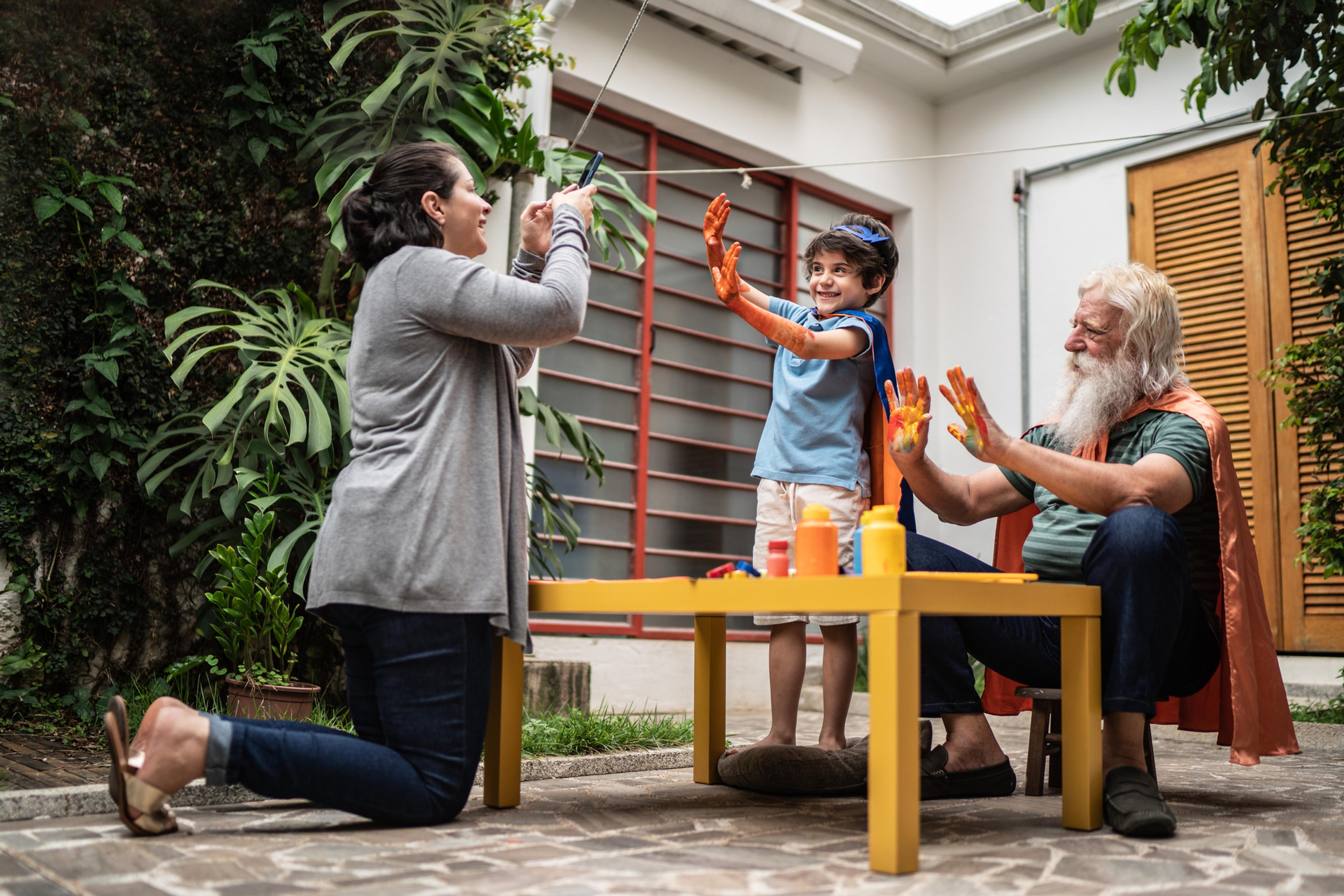The Importance of Intergenerational Relationships
Jake Newby
| 4 min read

When many of us were kids, most of the relationships we had could be categorized as intergenerational. We played with kids our own age, sure, but many of us regularly hung around our parents, grandparents, siblings, cousins and neighbors.
Look around as you get older and most of the people you are close with are probably in your age range. This happens naturally. As we grow up and go to school, get into romantic relationships, move away from home and join career fields with our peers, those intergenerational relationships start to fade away. But there can be value in maintaining them.
What are intergenerational relationships?
Intergenerational relationships are relationships that span generations. They consist of people spending quality time together, laughing, relating, telling stories, participating in the same activities and generally becoming close and learning from each other.
“Being intergenerational as a society isn’t just nice, it’s necessary,” said Ypsilanti District Library librarian Stacey Palazzolo. Passionate about the concept, Palazzolo is helping to organize intergenerational events in the Ypsilanti community this fall. The library has hosted an intergenerational walking club. “We have more in common than people think. I think it’s pretty easy to become age segregated. When I was in college, I didn’t really hang out with anyone my age besides my parents.”
One of the many benefits of intergenerational connections is the wisdom older adults can pass on to younger generations based on so many more life experiences.
Benefits of intergenerational relationships
A 2022 study examining the benefits of intergenerational wisdom-sharing noted a positive effect on youth participants and found that research supported the development and promotion of programs that focus on the transfer of wisdom from older to younger people.
Here are more benefits of intergenerational relationships:
- They build a stronger community.
- They help keep stories and local history alive within families and communities.
- It’s important for the healthy aging process in older adults, helping to prevent isolation and loneliness, while instilling a sense of purpose.
- Older adults can soak up the enthusiasm and wonder of young children.
- Teens and young adults who spend more time with older adults could become more compassionate and less ageist.
“It feels good. You get more perspectives,” Palazzolo said. “You learn a lot from other people, whether they’re older than you or younger than you.”
A lasting memory was left with Palazzolo during one of the Ypsilanti District Library’s intergenerational walking club meetups. An older woman named Edda who had recently had her knee replaced was advised by her doctor to do more walking.
“She would come out on Wednesdays and for a while it was just her and I, but then one day, a young woman who was in her late 20s came with two of her kids and her roommates’ two kids, so four kids,” Palazzolo recalled. “The kids were picking flowers and giving them to all of us. And Edda was so delighted by all of that, putting them in her hair and everything. I had walked with Edda other times, but there was a noticeable difference that day.”
Ways to build intergenerational relationships
Large families can try to organize more family gatherings to promote intergenerational connections. Neighborhood block parties are another great way to bring multiple generations together.
It’s also worth checking with local community and recreation centers and libraries to see what intergenerational programs to participate in.
“Libraries are a natural place for intergenerational activity to happen,” said Palazzolo. “We don’t have to do things in separate silos, by age group. In fact, it would be better if we didn’t. The point of the intergenerational art series is to make art with people of all ages. We’ll have younger people and older people in the room and they’re going to talk organically.”
If your local community centers and libraries haven’t developed any intergenerational activities, consider pitching ideas centered around artmaking, gardening, music, dance, and movement, such as walking. You’re never too old to stop learning from others or “too cool” to gain perspectives from those older than you. When we engage at every age, every generation gets something out of it.
Photo credit: Getty Images
Read more on MIBlueDaily:





